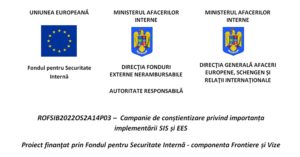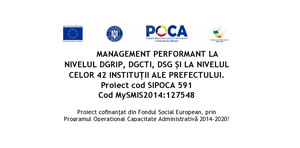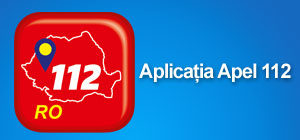Following the invitation of H.E. Jean Cornet d’Elzius, Ambassador of the Kingdom of Belgium in Bucharest, on May 24th, 2024, Marian Cătălin Predoiu, Deputy Prime Minister, Minister of Internal Affairs, attended a round table meeting together with heads of missions of the European Union in Bucharest.
The discussions focused on Romania’s results in terms of border protection and the state of European discussions regarding accession to the Schengen area. The Ambassador of the Kingdom of Belgium in Bucharest presented the main achievements of the Belgian Presidency, emphasizing the adoption of important pieces of legislation (e.g. Pact on migration and asylum) and emphasizing the need for implementation by all member states.
Regarding border protection, Minister Predoiu presented the concrete measures taken by the Ministry of Internal Affairs through the General Inspectorate of the Border Police to protect the border, to combat illegal migration, human and drug trafficking and cross-border crime. Minister Predoiu demonstrated with figures and statistics the professional way in which the Border Police and the Romanian Police approach the challenges in the field, showing that following the measures taken, illegal migration has decreased in Romania by 75%.
This fact demonstrates that the working system implemented at the level of the ministry, through investments in equipment, the intensification of the professional training of police officers, measures to increase the integrity in the exercise of controls and in general the public function, including through the General Anti-corruption Directorate of the MIA and through the GDIP, the cooperation between the departments of the MIA system and its weapons, the very good cooperation with neighboring states, the pilot projects implemented, comes to fruition and we intend to continue in the same way.
On the diplomatic level, intensive regional cooperation actions were carried out, working meetings with the Bulgarian, Hungarian and (recurrently) Austrian ministers, periodic videoconferences at ministerial level and permanent contact with the European Commission and the current and next presidency, participation in high-level ministerial meetings (e.g. the Ghent Conference on Migration) with substantial concrete interventions regarding the MIA’s performance in protecting Romania’s border and implicitly the EU’s borders, meetings that strengthened the MAI’s position in the European concert of efforts to combat migration illegal and border protection.
Important documents were also signed, for example the update of the working memorandum with Bulgaria, trilateral agreement Bulgaria-Romania-Austria.
„Cooperation with all our neighbors, including the Republic of Moldova and Ukraine, but also with Austria, in combating illegal migration, is exemplary”, emphasized Minister Predoiu. „We also contributed to the finalization of the Migration and Asylum Pact, we implement the Dublin Agreement smoothly, we support the Republic of Moldova and Ukraine in combating illegal migration and cross-border crime.”
Regarding the Schengen file, the Romanian minister emphasized the fact that „it is a test for cohesion, coherence, European solidarity, it is no longer a test for RO’s capabilities to fulfill the Schengen criteria and protect the borders, capabilities demonstrated repeatedly through visits by evaluation and by the performance on the ground, but it is a test of the European ability to fulfill its objectives and programs”.
Minister Predoiu expressed his belief that this year, as in 2023, we will find the solution to complete the file at once and in a manner appropriate to the positions expressed on the side of the file.
The Romanian minister emphasized the fact that he has excellent cooperation with Austria, Bulgaria and Hungary, which will hold the presidency of the Council, and the relations gradually built on a personal level with the Austrian, Bulgarian and Hungarian ministers, but also with the other ministers of the EU member states and the European Commissioner, are a crucial support for reaching Romania’s objectives, which are, at the same time, European objectives.
During the meeting, there were also issues addressed such as cooperation with the Republic of Moldova and Ukraine, preparations for the implementation of the Migration and Asylum Pact, challenges in combating disinformation, especially in the context of the upcoming elections, the need to strengthen cooperation between member states to combat organized criminality networks, especially in the field of combating drug and human trafficking.
In the matter of combating drug trafficking, the Romanian minister made an extensive pleading for increased cooperation between the national police, indicating that drug trafficking is an international phenomenon, instrumented by organized crime that has become a global phenomenon, and this scourge is a direct threat to the long-term functioning of democratic societies.
The Romanian minister emphasized the need for transatlantic cooperation on this subject, including with the USA, as the key to success in the fight against drugs is cooperation through teams and mixed operations at the international level, the sharing of information on organized crime networks and groups between the specialized structures of the national police, the international anti-drug operations in combating large drug shipments, etc. The Romanian minister continued to evidence that since taking summons in June 2023, he set the fight against drugs as a priority, he asked the Romanian Police to launch again the fight against drugs, and the result was the launch of hundreds of anti-drug operations by the specialized structures, resulting in important captures, emphasizing that the numbers prove the will, capacity and effort of the Romanian Police, concluding that these efforts will continue, in parallel with the institutional efforts to build platforms for international police cooperation, a topic that he addresses in all meetings with his ministerial counterparts internal and not only.
In conclusion, the minister mentioned the fact that, although it is a year with four series of elections that make reforms difficult, he launched within the ministry a process of reflection and preparation of future institutional reforms, including the Police Academy, subjects on which he will communicate publicly at the proper moment.



